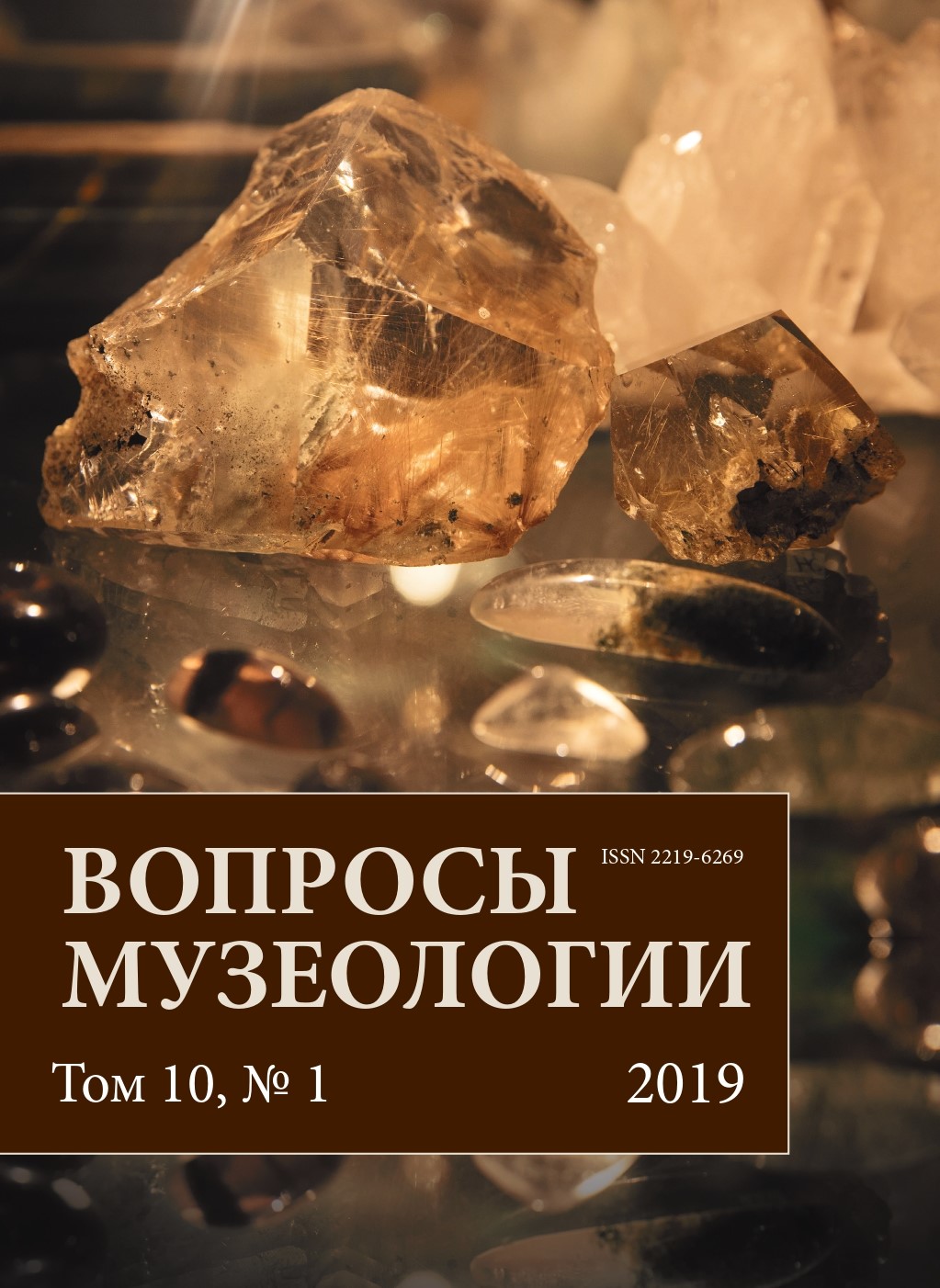Museum anthropology: new challenges
DOI:
https://doi.org/10.21638/11701/spbu27.2019.111Abstract
In recent years, there has been a growing interest in culture as a key factor in the success of a company. Such new directions in management as, for example, design-thinking, which are actually based on anthropological methods, are actively developing; therefore, some authors directly link the modern approach to management with the use of cultural and anthropological tools in management. The sociocultural tasks and challenges of museums are becoming more diverse, since museums are becoming increasingly anthropocentric in all aspects of their activities, and museum communities are becoming more multicultural. This article is devoted to the analysis and revision of the term “museum anthropology”. In the work we can see the contemporary perception of this direction in the professional community and the sources of the main interpretations of this discipline. Simultaneously, on the basis of modern management theories and key problem areas of museum studies, the author suggests a new look at museum anthropology and its tasks, significantly expanding both the term itself and the scope of anthropological knowledge in the museum. Since museum anthropology somehow affects today almost all aspects of museum management, the author recommends paying attention to its use for the training of museum specialists. The article attempts to understand museum anthropology as the actualization of classical anthropological methods and subjects from the point of view of their applicability to the management of a museum as a sociocultural institute and microsocial engineering using museum resources.
Keywords:
museums, museology, museum anthropology, socio-cultural, socio-cultural anthropology, museum design, socio-cultural management, migrations
Downloads
References
Литература
Шнирельман В. А. 2010. Историко-этнографический музей: презентация традиции или репрезентация конструкции. Этнографическое обозрение 4: 3–26.
References
Ethnographic museums today. 2007. Anthropological forum 6: 6–132. (In Russian)
King D., Logan D., Fisher-Rait Kh. 2017. Leader and tribe. Five levels of corporate culture. Moscow: Mann, Ivanov i Ferber Publ. (In Russian)
Downloads
Published
How to Cite
Issue
Section
License
Articles of "The Issues of Museology" are open access distributed under the terms of the License Agreement with Saint Petersburg State University, which permits to the authors unrestricted distribution and self-archiving free of charge.





